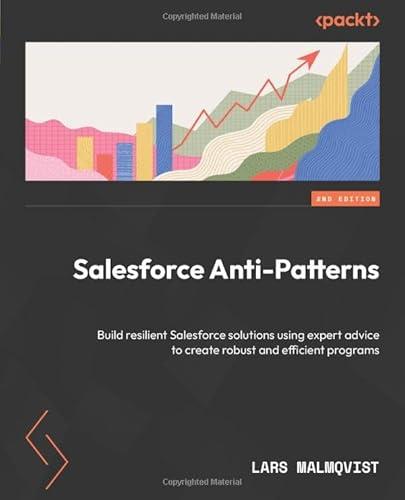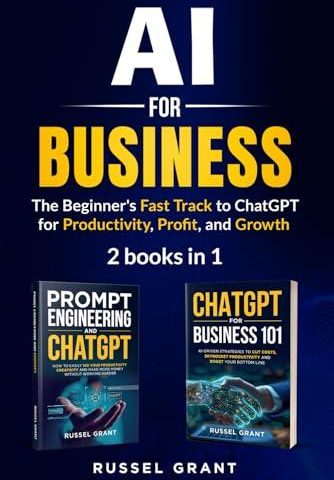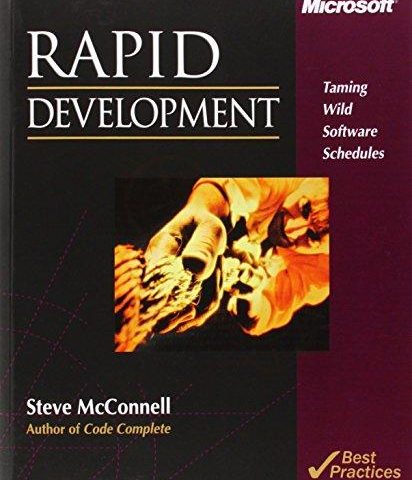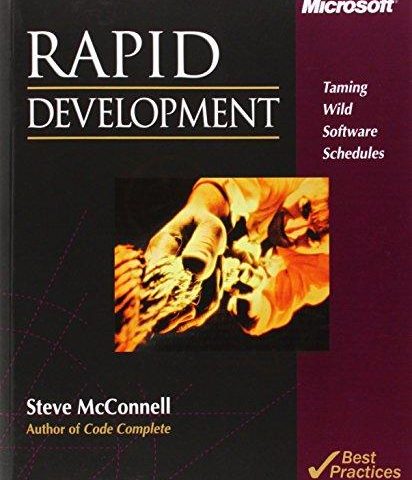In the ever-evolving landscape of Salesforce implementation, navigating the complexities of building efficient and resilient solutions can be a daunting task. We’ve all faced the challenges of avoiding common pitfalls while striving for optimal functionality in our Salesforce programs. That’s where ”Salesforce Anti-Patterns: Build Resilient Salesforce Solutions Using Expert Advice to Create robust and Efficient Programs” comes into play. In our exploration of this insightful resource, we found a wealth of knowledge aimed at identifying and overcoming design flaws that coudl impede our Salesforce success. This review will delve into the book’s practical guidance, expert insights, and its overall effectiveness in helping us enhance our Salesforce strategy.Join us as we share our firsthand experiences and insights gleaned from this complete guide, which aims to transform our approach to building scalable and lasting salesforce solutions.
Table of Contents
Overview of Salesforce Anti-Patterns and Its Importance in Development
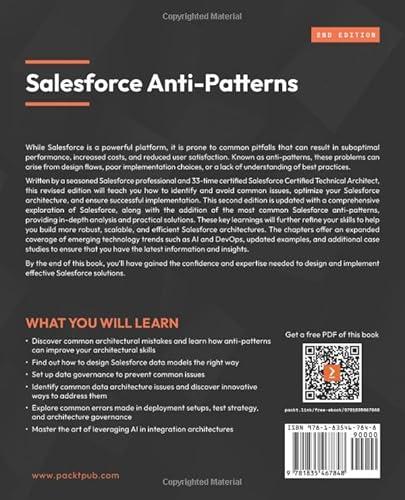
In the realm of Salesforce development, understanding anti-patterns is crucial for avoiding common pitfalls that can lead to inefficiencies and complications within our solutions. Anti-patterns represent practices that seem effective at first but ultimately result in negative outcomes, impeding the robustness of our applications. By recognizing these pitfalls, we can foster better practices and create more resilient solutions. The guidance offered in this resource emphasizes the importance of identifying these detrimental patterns early in the development process to avert costly renovations later.
Moreover, the insights provided on overcoming these anti-patterns equip us with the tools to build not just functional but also scalable and efficient applications.Key aspects include recognizing over-customization, inadequate testing methodologies, and neglecting performance considerations. By adhering to the expert advice presented, we can avoid **high maintenance costs**, **prolonged development times**, and **user dissatisfaction**.Embracing these guidelines will ensure our Salesforce solutions are not only robust but also adaptable to changing buisness needs.
| common Anti-Patterns | potential consequences |
| Over-customization | Increased complexity and maintenance issues |
| Neglecting Performance | Slowing down system operation and user experience |
| Inadequate Testing | Higher risk of bugs and system failures |
key Features and Insights Into salesforce Anti-Patterns
In our exploration of effective Salesforce solutions, we’ve discovered several **key features** that set this product apart. The guide delves into common **anti-patterns** that developers might encounter, providing clear examples and expert advice to help us avoid these pitfalls. Some of the insights include:
- Identifying Inefficiencies: Techniques to recognize and eliminate ineffective practices in our Salesforce applications.
- Best Practices: Strategies that foster resilience in our systems, ensuring long-term stability and performance.
- Real-world Scenarios: Case studies that illustrate the consequences of anti-patterns, enhancing our understanding of their impact.
Moreover, the product offers a structured approach to building robust solutions, emphasizing the importance of **adaptability** and **scalability**. We appreciate that it not only outlines mistakes to avoid but also equips us with practical tools to create efficient programs. A speedy reference table summarizes the most critical anti-patterns and corresponding solutions:
| Anti-Pattern | Recommended Solution |
|---|---|
| hardcoding Values | Use Custom Labels |
| Over-Reliance on Triggers | implement Process Builder |
| Lack of Documentation | Maintain Up-to-Date Diagrams |
For those looking to enhance their Salesforce development practices and build resilient systems, we recommend checking out this invaluable resource. You can delve deeper into the insights shared by visiting here.
Practical Applications and Strategies for Building Resilient Solutions
In today’s fast-paced business landscape, we understand the importance of building solutions that can withstand change and challenges. Utilizing expert advice,we can effectively identify and address common anti-patterns in our strategies. By integrating best practices, we can streamline processes, enhance user experience, and improve overall system performance. Consider the following practical applications:
- Emphasizing Configuration Over Customization: We can focus on leveraging Salesforce’s built-in features to minimize complex customizations that often lead to maintenance challenges.
- Implementing Layered Architecture: This approach allows us to separate concerns within the solution, making it easier to modify or replace components without disrupting the entire system.
- Regularly Reviewing and Refactoring Code: Scheduling time to revisit and optimize our existing implementation can significantly reduce technical debt over time.
To further enhance our resilience, we also believe in the value of efficient program delivery through effective collaboration and communication within our teams. Adopting agile methodologies enables us to remain flexible and responsive to changing requirements. Additionally, establishing clear documentation standards can help ensure that everyone is on the same page as we move forward. The following table illustrates key collaborative strategies:
| Strategy | Description |
|---|---|
| Daily Stand-ups | Short meetings to quickly address challenges and align on objectives. |
| Incremental Delivery | Implementing features in smaller batches for quicker feedback loops. |
| Cross-Functional Teams | Bringing together diverse expertise to foster innovation and problem-solving. |
By applying these principles and strategies, we can enhance our salesforce solutions to be more resilient and efficient. For those eager to deepen their knowledge and expertise in this area, explore this resource and discover how we can build robust programs together.
Expert Recommendations for Enhancing Efficiency and Robustness in Salesforce Programs
When aiming to bolster the effectiveness of our Salesforce solutions, it becomes imperative to understand and avoid common pitfalls in program development. This resource offers invaluable insights on **best practices** that can help us navigate complex challenges. key recommendations include:
- **Thorough Planning:** Allocate sufficient time for thorough requirement gathering and analysis to prevent scope creep.
- **Modular Architecture:** Emphasize a modular design to enhance reusability and reduce technical debt.
- **Automated Testing:** Implement automated testing early in the development lifecycle to swiftly identify issues.
Moreover, integrating these strategies not only enhances performance but also reinforces the system’s resiliency. We are encouraged to prioritize the following aspects to achieve optimum results:
| Focus area | Benefits |
|---|---|
| Security Protocols | Protects against vulnerabilities and enhances data integrity. |
| User Training | Ensures that users are equipped to navigate the system effectively. |
| Feedback Loops | Facilitates continuous advancement through user and stakeholder feedback. |
By implementing these expert recommendations, we can significantly enhance the robustness and efficiency of our Salesforce programs. For those eager to dive deeper into these strategies, explore the complete guide here.
Customer Reviews Analysis
Customer reviews Analysis
In our examination of the product “Salesforce Anti-Patterns: Build resilient Salesforce solutions using expert advice to create robust and efficient programs,” we gathered insights from various customer reviews to understand its effectiveness and reception within the Salesforce community. Our analysis reveals key themes and trends that speak to both the strengths and weaknesses of the product.
Overall sentiment
customers have had a positive experience with this product, appreciating the practical guidance it provides. The recurring sentiment tends to highlight its usefulness for both beginners and seasoned Salesforce professionals alike.
Key Strengths
- Expert Advice: Many reviews point out the wealth of knowledge contained within the text, emphasizing the expert insights which help in identifying common pitfalls.
- Practical Examples: Several customers appreciate the practical examples provided throughout the book, noting they are easy to implement in real-world scenarios.
- improved Efficiency: Users have reported enhanced efficiency in their Salesforce solutions after applying the recommendations outlined in the guide.
Common Critiques
- Depth of Content: Some reviewers expressed a desire for more in-depth explanations of certain concepts, feeling that additional detail would enhance their understanding.
- Content Accessibility: A few users mentioned that beginners might find some of the terminology and concepts challenging without prior knowledge of Salesforce.
- update Requirements: A couple of customers highlighted that some examples may not align perfectly with the latest Salesforce features, indicating a need for regular updates to the book.
Customer Review Summary Table
| Review aspect | Positive Feedback | Negative Feedback |
|---|---|---|
| expertise of Advice | High praise for informed insights | Lacks depth in some topics |
| Practicality | Useful real-world examples | Some outdated examples |
| Accessibility | Great for all levels | Challenging for absolute beginners |
| Impact on Efficiency | Improves solution efficiency | Needs continuous updating |
“Salesforce Anti-Patterns” appears to be a valuable resource for those looking to enhance their Salesforce solutions. While it holds strong points in areas such as expert advice and practical submission, potential customers shoudl consider the critiques regarding content depth and accessibility. We encourage users to evaluate these aspects considering their own experience and knowledge level before making a commitment.
Pros & Cons
Pros & cons
In our exploration of “Salesforce Anti-patterns: Build resilient Salesforce solutions using expert advice to create robust and efficient programs,” we have identified several advantages and disadvantages to consider before diving into this resource. Below, we summarize our findings in a straightforward manner.
| Pros | Cons |
|---|---|
| Offers practical insights into common pitfalls, helping us avoid costly mistakes in Salesforce implementation. | Some topics may feel advanced or too specific for beginners, which could require additional background knowledge. |
| Provides expert advice from seasoned professionals, enhancing the credibility of the information presented. | The focus on anti-patterns might overshadow innovative solutions, leading to a narrow outlook on problem-solving. |
| encourages a resilient approach to Salesforce solutions, promoting long-term efficiency and scalability. | Not all anti-patterns may apply to every organization, making some sections less relevant for certain use cases. |
| structured format allows for easy navigation and quick reference to specific anti-patterns we may encounter. | As a supplemental resource, it may not provide a comprehensive overview of all aspects of Salesforce development. |
By weighing these pros and cons, we can better determine how “Salesforce Anti-Patterns” may fit into our strategy for building efficient and resilient Salesforce solutions.
Embrace a New Era
As we conclude our examination of “Salesforce Anti-Patterns: Build resilient Salesforce solutions using expert advice to create robust and efficient programs,” we have gained valuable insights into the importance of identifying and addressing anti-patterns in our Salesforce implementations. This resource not only helps us recognize potential pitfalls but also guides us in developing more effective and sustainable solutions that can elevate our projects and enhance user experiences.
The expertise shared within the pages of this book empowers us to build resilience into our Salesforce solutions, ensuring we avoid common missteps along the way. By applying the knowledge gained from this insightful guide, we can strengthen our programs and achieve more significant results.
If you’re looking to improve your Salesforce solutions and bolster your development practices, we encourage you to explore this essential book further. You can find it [here](https://www.amazon.com/dp/1835467849?tag=mikeperraul-20&linkCode=osi&th=1&psc=1).

